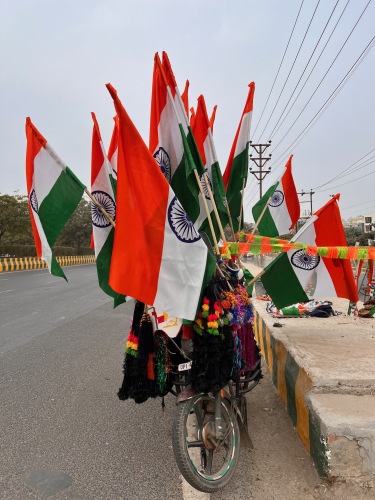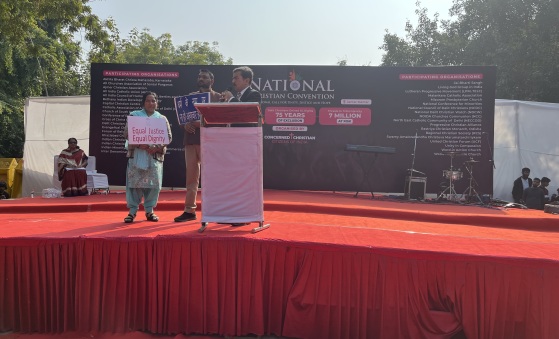
More than 15 families allegedly converted from Christianity to Hinduism during a ceremony in Karnataka’s Chikkaballapur district on July 24. BJP leader Ravinarayana Reddy organised the event at the Ashwathnarayana Temple in Vidurashwatha, Gauribidanur Taluk.
The families, from Nagasandra, Gandhinagar, Kadirenahalli, and Kodigenahalli villages, participated in rituals including poojas and homa-havana ceremonies. The ceremony included purification rituals and offerings to deities, symbolising the families’ reintegration into the Hindu fold. Local priests conducted the proceedings whilst community members and supporters attended, creating an atmosphere of celebration.
Reddy described the conversions as voluntary. “This is a moment of spiritual homecoming for these families. They expressed their desire to return to Sanatan Dharma, and we facilitated the process with respect and adherence to traditional rituals,” he stated.
The ceremony forms part of the ‘Ghar Wapsi’ movement, associated with Hindu nationalist organisations like the Vishva Hindu Parishad and Rashtriya Swayamsevak Sangh. Organisers describe it as individuals “returning home” to their ancestral faith.
The ‘Ghar Wapsi’ programme remains contentious across India. Proponents argue it protects cultural heritage, while critics view it as challenging religious freedom. In Karnataka, such events have sparked discussions amid ongoing debates around anti-conversion laws.
The BJP-led government has supported legislation aimed at what it describes as curbing forced or coerced conversions, citing concerns over missionary activities targeting vulnerable communities. However, the issue of religious conversion involves complex socio-economic factors that influence individuals’ decisions.
Social media platforms, particularly X, buzzed with reactions to the Chikkaballapur event. Posts praised the efforts of Reddy and the BJP, with some users describing the conversion as a “testament to the enduring strength of Hindu culture.” Others called for nuanced discussions on religious freedom and the various factors affecting faith choices.
Similar events have occurred previously in Karnataka. These include conversions of 23 individuals in Haliyal taluk in 2020, led by BJP MP Anant Kumar Hegde, and a 2021 event in Badravathi involving nine people.
Earlier this year, right-wing activist, author and Yuva Brigade founder Chakravarthy Sulibele had made controversial remarks at a Mangaluru programme in March, advocating increased focus on reconversion activities. “Now is the time for change. We will now talk about ‘ghar wapsi’,” he stated, suggesting youth should be trained for such activities.
He criticised those who report conversions to the Vishva Hindu Parishad instead of taking action. “Instead of calling VHP leaders and complaining about who converted their religion, you should ensure their reconversion yourselves,” he said. Sulibele outlined a specific process: “just take such a person to the temple, make them fold their hands, and have them say, ‘I made a mistake.’ This should make the news.”
Sulibele had encouraged Hindu men to seek partners from other religions, asking: “How long will you keep saying that you can’t find a girl within your religion? Now start looking towards others as well.” He also suggested promoting such activities on social media, saying: “Our youth create reels on random things; now they should make reels on ‘ghar wapsi’.”




